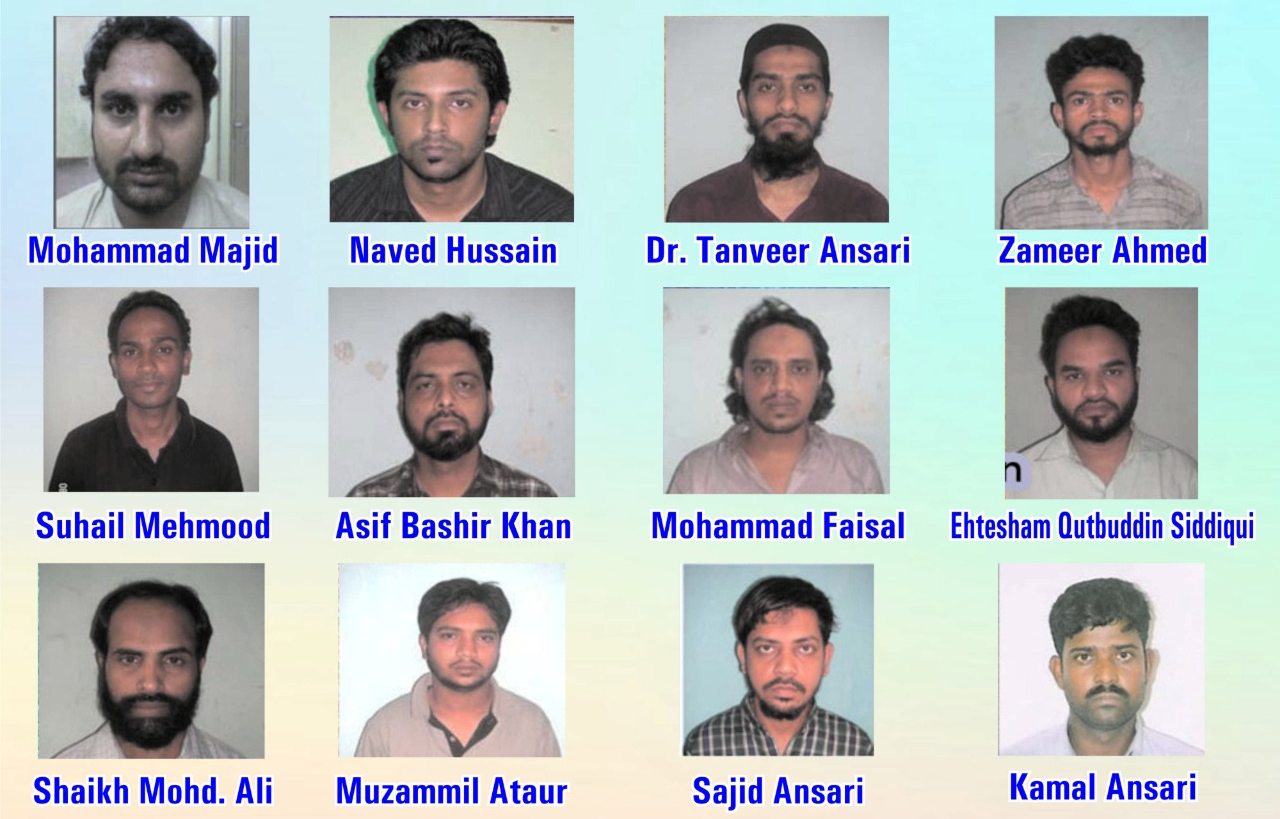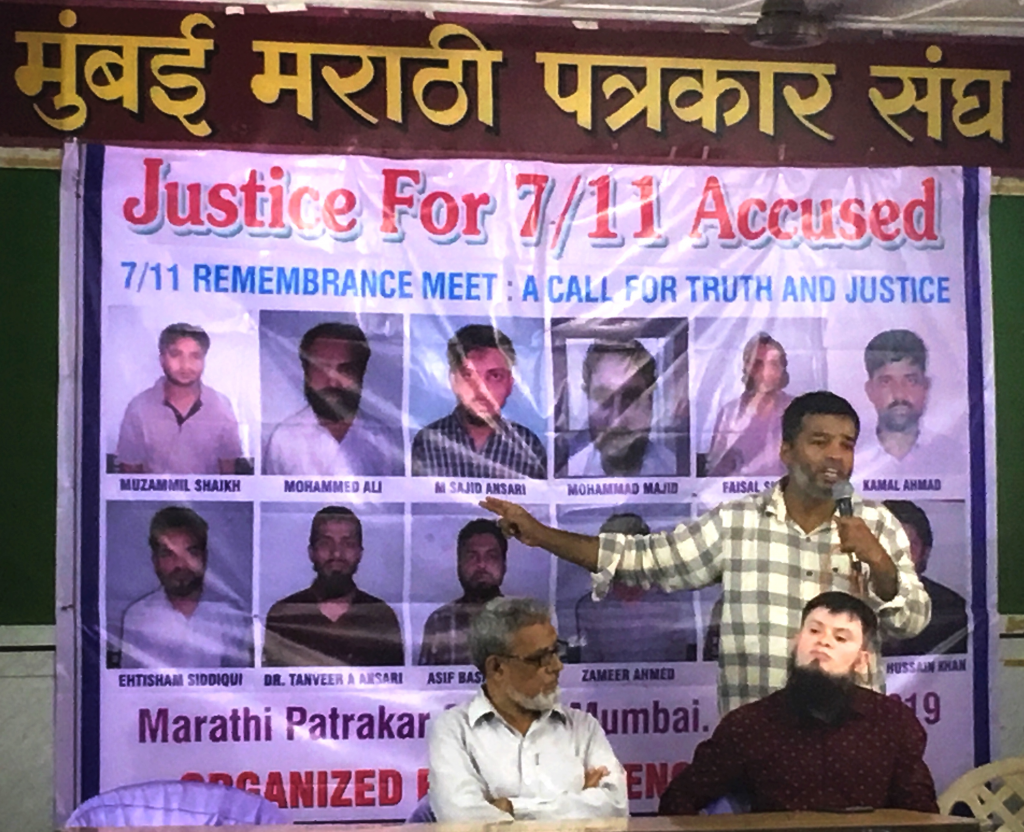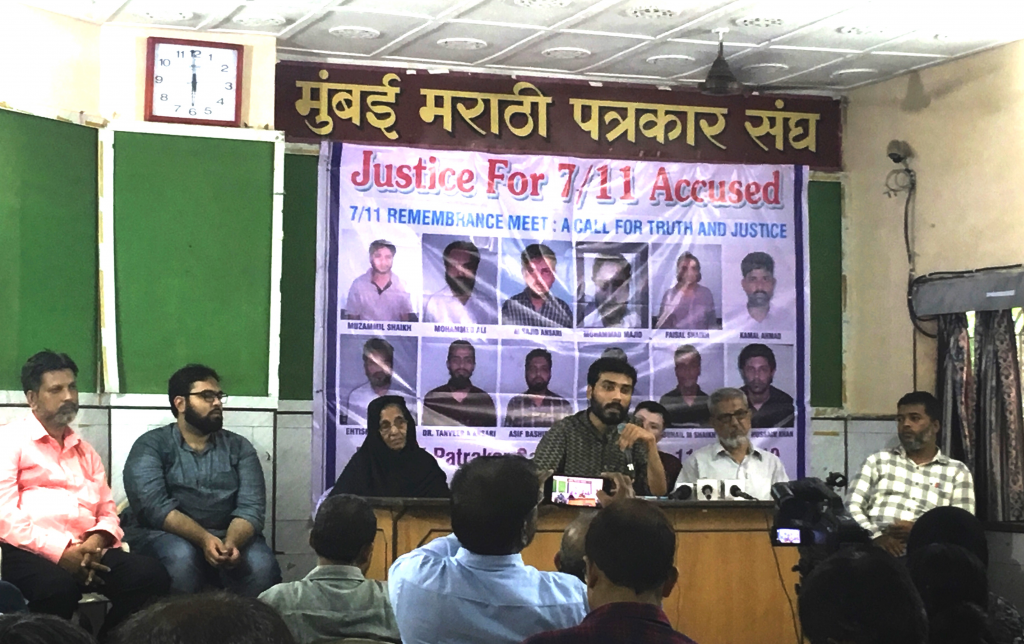Justice delayed is justice denied: The continuing struggle of wrongful convictions in 7/11 attacks of Mumbai

Nikhil Latagajanan for TwoCircles.net
“There is an injustice in the Indian Judiciary but sometimes it does make justice.” Wahid Shaikh, one of the thirteen accused of the blasts who was acquitted by the court in 2015 after spending nine years in prison.
A remembrance meeting was organized at Marathi PatrakarSangh on 11 July 2019 for the victims of 7/11 serial bomb blasts in the suburban rails of Mumbai in the year 2006. It was organized by Innocence Network India to make a call for justice for the families of accused who have been wrongfully arrested and tortured by Anti-Terrorist Squad(ATS) of Mumbai Police. This meeting was a commemoration for those who lost their lives in the blast and for those who became victims to state machinery.
Mumbai blasts of 7/11
On July 11, 2006, the railway networks in Mumbai were targeted with serial bomb explosions. This attack that was carried out with seven explosions at Mira-Bayandhar, Jogeshwari, Mahim, Santacruz, Khar, Matunga, and Borivli stations killed nearly 180 people and more than 300 were injured. It has been informed by the investigation team that the bombs were planted in pressure cookers placed in first class compartments. The Anti-terrorist Squad of the Maharashtra Police arrested many people between July 20, 2006 and October 3, 2006, and claimed to have cracked the case by applying a scientific procedure to collect the evidence. In September 2015, twelve out of thirteen primary accused were convicted guilty. Wahid Shaikh was acquitted in the case. Since then he has been fighting for the cause to prove the innocence of the remaining 12 people.
Trials and Conviction
Many people were arrested by ATS from different locations of the country and detained for interrogation in connection with the blasts. All of these thirteen accused were prosecuted under a special Maharashtra Control of Organised Crime Act (MCOCA) till 2015. Twelve of them convicted guilty in the last hearing on 30 September 2015. Five of them were given death penalty namely Faisal Sheikh, Asif Khan, Kamal Ansari, EhteshamSidduqui and Naveed Khan for planting the bomb. Remaining others got a life sentence and are placed in different prisons.

Claims from the families and human rights defenders
At the press conference, the families of accused expressed their feelings and human rights activists spoke about the facts and the flaws of the investigation that was undertaken by ATS.
Wahid Shaikh was acquitted in the case in 2015 and from last four years is working as a human rights defender. Even after proven his innocence, Wahid and his family members are being continuously harassed by police department. He is being called by police in-charge to visit the police station without any reason. This has been reported to the National Human Rights Commission of India but the police haven't stopped harassing Wahid. His house has been visited by police several times in past few weeks.
On his memories in prison, Wahid penned an autobiography titled “Begunah Qaidi” to let people know what they can do if someone is ever arrested in a fabricated terror case and from whom to seek help from to get justice.
Kamal Ahmed, a resident of Madhubani Bihar, was picked up from his house at night. His mother Mrs. Shaheedunnisa expressed her was framed and because of his arrest, his children are going through difficulties in everyday life from the past 13 years. She said that how she had to travel to the Nagpur prison from her place but still she was not allowed to meet her son.
Wahid told during the meet that Kamal is on the verge of losing his eyes due to the inhumane torture that has been happening with him in prison. Wahid also shared his experience of facing trauma during his nine years of prison term and how police tortured the victim to breakdown their willpower for extracting any confession they want.
Mumtaz Mir a writer and social activist currently settled in Burhanpur, Madhya Pradesh was also present at the meet and narrated how he suffered years of the trauma of wrongful accusation and dentition by the police during his residence in Mumbai.

Fabrication of Evidence
National Secretary of Students Islamic Organisation (SIO) Mr. FawazShaheen, presently working with Quill Foundation as a Senior Researcher pointed out that it is becoming a pattern that a particular community or section of society is targeted by wrongly implicating its people for criminal activities.
He explained how the investigation led by ATS was unjust from the beginning itself.
According to him the alleged Call Data Records (CDRs) of the accused and Narco Analysis tests were widely used to create a false narrative in media to maintain public sentiment to propagate stories for establishing the connection of the attacks with Lashkar-e-Taiba. These claims allowed the ATS to get prolonged remand to extract fabricated confessions from the accused by torturing them physically and mentally.
But during the trial, these CDRs and results Narco analysis, on the basis of which the accused were treated as guilty, were not even produced before the court by the ATS. On the other hand, the accused themselves requested to bring out those CDRs in the court since it can prove their innocence, the ATS admitted that they never had such call records with them or the NARCO tests. Interestingly such NARCO analysis results, as pointed out by Supreme Court, are not legally admissible as evidence in the court of law. It is very clear that all this sensation was created by ATS through media to cover and the fabrication behind the case from the public.
Sharib Ali one of the founder members of Innocence Network pointed out that the MCOCA law is not even applicable since the case was already under the UAPA law. But the confessions were all allowed under MCOCA. He stated that the ATS was unable to produce any evidence hence has changed the investigation procedures and applied MCOCA to use the confession of accused as evidence and misused the forensics data to prove them guilty. It has also led to form two different sets of accused for the same crime.
The Plight of Families
Khalid Siddiqui, a social activist put a light upon the conditions of the families of those accused who are suffering from past 13 years. It is not just thirteen men facing torture in prison but many families who were made unnecessary victims of the attacks by the system. Many of the family members are suffering from severe mental and social trauma and health issues.
This whole case was fabricated not to solve the case or to deliver those responsible by the state but to calm the public anger over the loopholes of the police and state by imposing the burden crime on innocent people who are helpless and unable to defend themselves.

This is a pattern in various cases of terrorism where certain evidence is sensationalized in the media to satisfy public conscience, which also help the agencies to get extended police custody which they then use to torture and pressurize accused to sign on fabricated confessional statements. It was also put out during the discussions that along with these innocent victims, the state and police also targeting the human rights activist and lawyers who are fighting for the justice. The case of Adv. Shahid Azmi’s murder is one of them who also fought the cases of wrongly accused victims under terrorism laws and got many acquittals.
All the families of these convicted people and of Wahid Shaikh suffered huge emotional, social and financial losses and it is as not any different from the loss suffered by the families of people who lost their lives or got injured in the blast. Such wrongful detention and an unfair trial is against the principle of natural justice.
In the concluding note, the issued was raised that, these thirteen men are just common innocent people but facing the injustice from the system. The loss caused by their wrongful prosecution is very difficult to ever compensate by the state. On the other hand, the real culprits who had executed these crimes are still out there and that is the big reason to worry for all of us.
And the questions arises here is, will our police and judiciary bring them to justice securing the safeguard for the innocent victims of these attacks? How do they cope up with it if branded as terrorist? Is it a real justice when it has been delayed for too long destroying many lives?
Nikhil Latagajanan is a Freelance Journalist and Documentary Filmmaker based in Mumbai. He writes on Social Issues and Human rights
